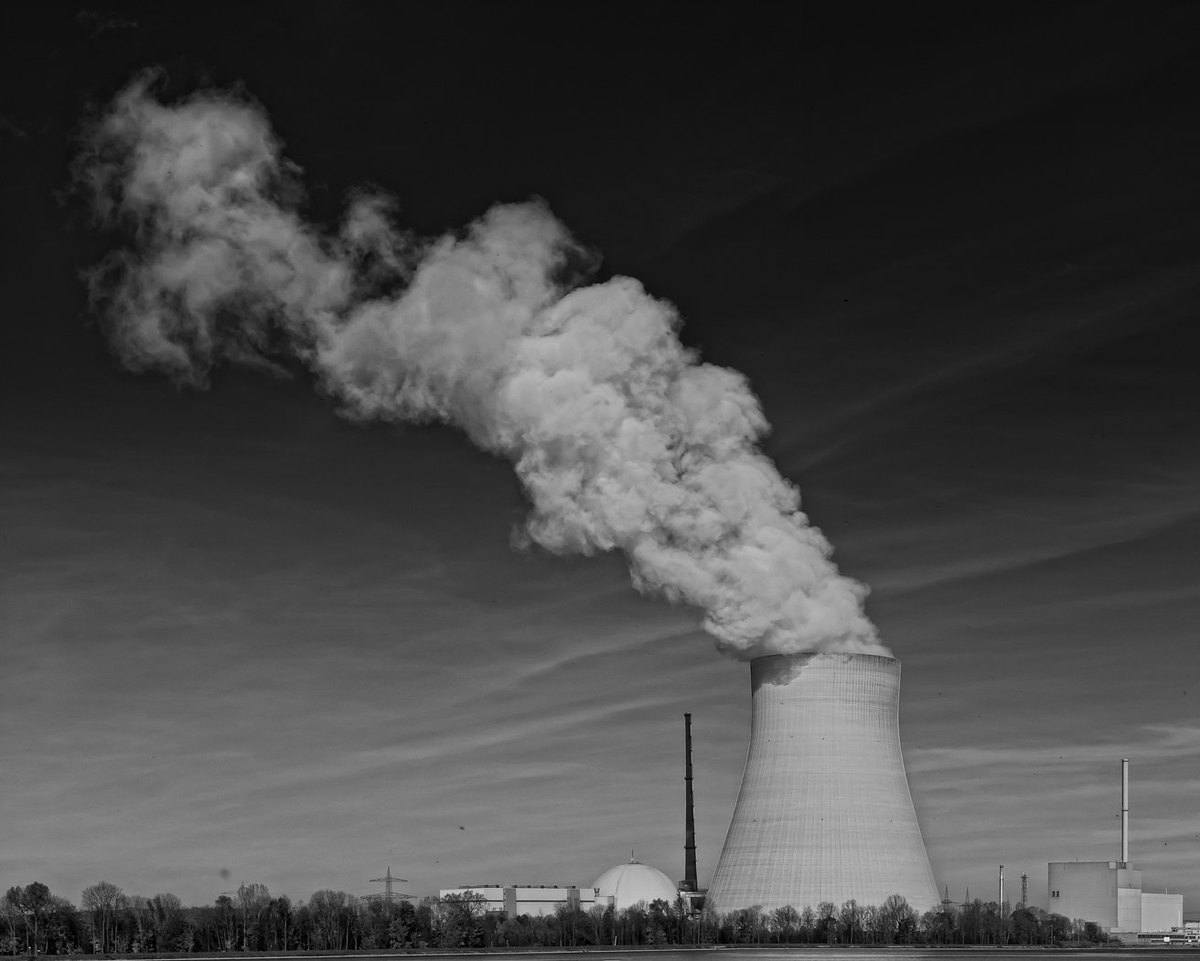
Photograph Source: Bjoern Schwarz – CC BY 2.0
Time was, that a woman suffering from menopause, pre-menstrual syndrome, a heightened libido or lack thereof, was labeled “hysterical.” Her very real medical or psychological troubles were put down to an “emotional reaction.” For a while these symptoms were even attributed to a “wandering womb.” What? Yes, really.
For years, if you were a woman who opposed nuclear power, you were likely subjected to exactly the same treatment (although luckily not the one for the “wandering womb,” which I won’t go into here). How many of us were told, usually by men, that we were simply far too “emotional”? (Implication? We just didn’t understand the actual “science”.)
But as the long-term survival of nuclear power became ever more unlikely, the pro-nuclear forces ramped up their rhetoric to sweep everyone into the “hysteria” basket. That’s where you belonged if you dared to claim that nuclear power is too dangerous a technology to continue. A hysteric. A fear-mongerer. And, these days, a purveyor of “fake news.” You’ll find it everywhere.
“Let’s see if there are any countries out there that did not get entirely persuaded by the anti-nuclear hysteria, and how that affected their carbon emissions,” wrote somebody called Anthony Watts on his blog after the 2011 Fukushima disaster.
Under the headline “There’s No Good Reason For Anti-Nuclear Hysteria”, Veit Ringel wrote in the spooky sounding Executive Intelligence Review, “If we do not guard against ideologically driven hysteria against modern, advanced nuclear technology . . . we will see that one day our granddaughters will be sewing T-shirts for the Chinese market.” That conclusion sounds pretty hysterical to me.
“A partial meltdown at Japan’s Fukushima Dai-ichi plant as a result of the largest recorded earthquake to hit Japan has set off a renewed bout of nuclear hysteria,” wrote John Downs in Business Insider.
Those illustrious scientists Penn & Teller called their takedown show on Helen Caldicott — who has certainly borne the brunt of the “too emotional” slur in our movement — “Penn & Teller vs Dr. Helen Caldicott, Candles & Anti-Nuclear Fearmongering.”
And here’s what well known columnist, Fareed Zacharia, just wrote in a February 14 column in the Washington Post that appeared to have been cribbed from the cliff notes of any number of pro-nuclear front groups:
“Fears about nuclear power, which Sanders clearly shares, are largely based on emotional reactions to the few high-profile accidents that have taken place over the past few decades.”
But it’s not fear that has done in nuclear power. It’s the very real risks — along with its exorbitant cost.
It’s the fact that it can poison people, animals, air, land and water for millennia.
It’s the fact that, despite their ivory tower pontificating, people like Zacharia have never met the mothers of children suffering as a result of the Fukushima disaster or even, still, Chernobyl. Those children may be immaterial statistics to lofty columnists and bloggers, but they aren’t immaterial to those mothers.
And it’s not fear that drives politicians like Bernie Sanders to oppose nuclear power. It’s that the subsidies we would squander, and the time we would waste on propping it up, costs us time we don’t have, and money we sorely need to fix climate change fast.
So, yes, Mr. Zacharia, I have an “emotional reaction” when I see small children who should be carefree and playing outside, confined indoors, or worse, coming down with thyroid cancer they would never have suffered without Fukushima.
I have an “emotional reaction” when I see the sad faces of mentally and physically disabled children dumped into Belarusian orphanages, children harmed by the 1986 Chernobyl nuclear disaster, which happened long before they were born.
I even have an “emotional reaction” when I see the photos and videos of dead or dying cows abandoned in Fukushima, their bellowing cries echoing around cowsheds already strewn with the corpses of their herdmates.
And yes, I have an “emotional reaction” even when there isn’t an accident.
I am disturbed at the alarming increase in leukemias among children living close to nuclear power plants.
I get emotional hearing the stories of Navajo uranium miners and their families, who must battle radiation exposure-induced diseases along with deprivation and discrimination.
I am disturbed, emotionally, at the toll taken on endangered sea turtles, captured and killed at operating nuclear plants.
And I get upset when I see that, once again, the only plans for dealing with radioactive waste are to dump it on poor communities of color.
The nuclear lobby counters all this by telling us, as Zacharia did, that nuclear power is “300 times safer than coal”, according to an Oxford University study. Which is of course, irrelevant. When we make our “emotional” argument that nuclear power harms all living things, none of us is here to say that coal would be better. It’s an absurd allegation. There will be no return to coal.
We are here to say renewables are safer. But not safe. We have yet to discover a form of energy generation that leaves no footprint in nature.
We don’t have to face Sophie’s Choice. But we do have a choice to replace nuclear power with renewables. And where nuclear power is closing — in Germany, Switzerland, and even in Nebraska and California — that is what is happening.
The American Psychiatric Association dropped the term hysteria in 1952. The pro-nuclear lobby should stop using it to dismiss the very real, medical harms of nuclear power, which most often impact communities the least resourced to fight back.
If you don’t have an “emotional reaction” when confronted with the tragedies wrought by nuclear power, then you are the one who needs a doctor.